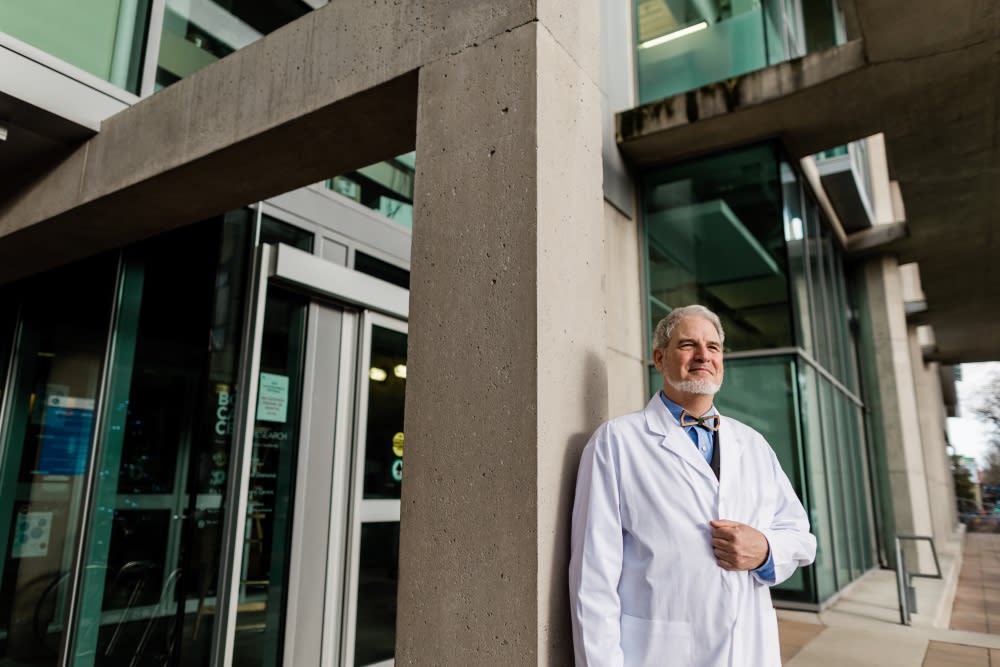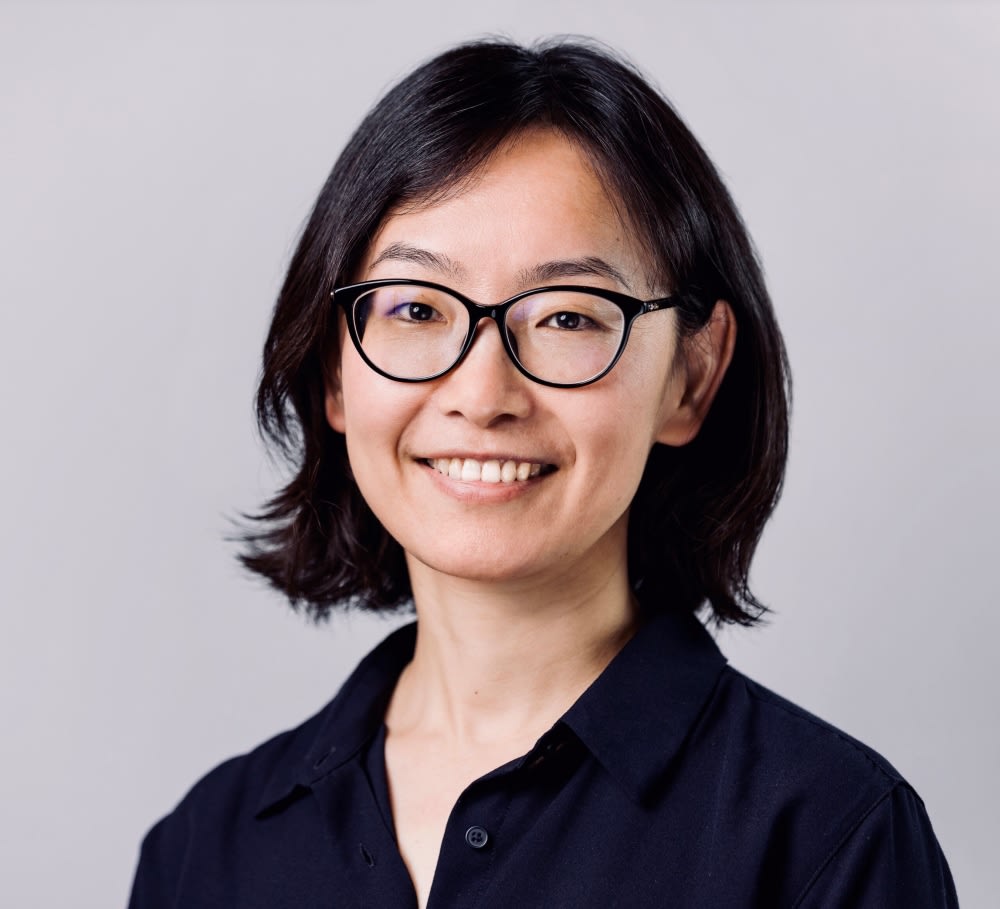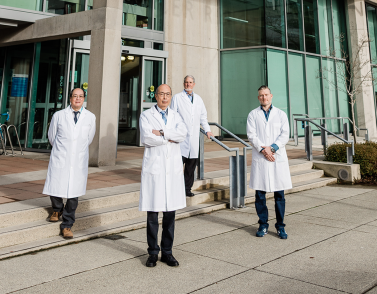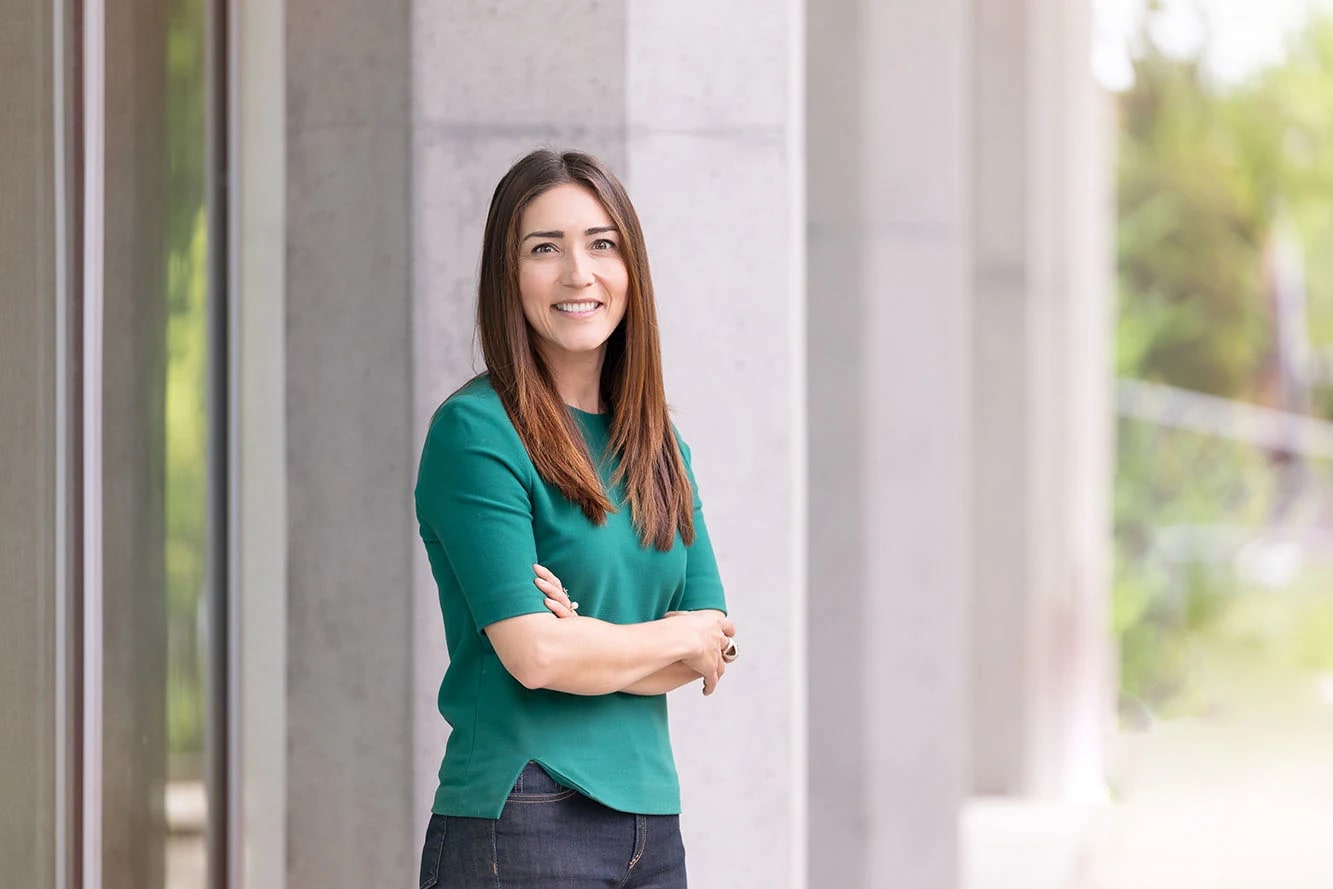BC Cancer is harnessing artificial intelligence (AI) to uncover new insights and improve outcomes across multiple cancers, with multidisciplinary teams of clinicians, researchers and computational scientists driving innovations that place B.C. at the forefront of global precision oncology.

Meet BC Cancer’s lung cancer team, who along with the Gynecological Cancer Initiative team, are using AI to transform diagnosis and treatment, turning research into real-world impact for patients.
Pioneering Early Lung Cancer Detection
At the forefront of lung cancer research, BC Cancer is redefining early detection through a powerful blend of AI, advanced imaging and collaborative innovation. With a focus on precision medicine, their work is not only saving lives, it’s setting the global standard.
Setting the Stage for Screening
Dr. Calum MacAulay, a distinguished scientist at the BC Cancer Research Institute, has spent his career developing technologies for use in clinical practice. “My motivation is creating new tools that improve patient care,” he says. His work spans biomedical optics, radiology, radiomics and deep learning to detect cancer early, when it’s most treatable.
Dr. Ren Yuan is a radiologist and translational scientist who was part of the research team that laid the foundation to create B.C.’s provincial lung cancer screening program using low-dose CT scans. Launched in 2022 with $2 million in BC Cancer Foundation donor support, it was the first of its kind in Canada.
The program has been a remarkable success, screening over 15,000 British Columbians with 70% of cases detect at Stages 1 and 2. Prior to the screening program, only 30% of cases would be caught in those early stages.
Now, the team is building on the success of the program to further improve outcomes. New questions have emerged, such as how often follow-up screening is needed and how to better predict who will respond to certain treatments, explains Dr. Yuan.
Precision Like Never Before
“AI is helping us go beyond what the human eye can see,” says Dr. MacAulay of their work developing an AI model to analyze subtle patterns in the screening program’s CT scans to predict which lung nodules are likely to become cancerous. The goal is more personalized care — catching aggressive cancers earlier and reducing unnecessary scans for lower-risk patients.
Another exciting development is BC Cancer’s new Photon Counting CT scanner—a revolutionary advancement in medical imaging that represents a significant leap forward in diagnostic precision and patient safety.
This technology produces sharper, more detailed images, while also significantly reducing radiation exposure to patients, says Dr. Yuan. This makes it especially valuable for cancer screening where minimizing radiation dose is crucial.
Dr. MacAulay likens the improvement to “upgrading from a black-and-white camera to a color one,” emphasizing how this next-generation system provides richer information about tissue composition and potentially disease characteristics. The application of AI to the images from the scanner is a new exciting opportunity.
BC Cancer was the first in Canada to acquire this scanner, thanks to a $3 million investment from the Leon Judah Blackmore Foundation via the BC Cancer Foundation. This technology opens new doors for research, especially in understudied populations like never-smokers.

Dr. Ren Yuan
B.C.’s Dream Team Looks Forward
The lung cancer research team is a diverse group of scientists, graduate students, postdocs, computer scientists and engineers, all working to advance innovation.
“It’s a truly collaborative environment,” says Dr. MacAulay. “We’re combining radiology, pathology, optics and AI to create tools that can be implemented in clinical practices.”
BC Cancer’s unique provincial model gives it an advantage in research. “We’re not the biggest, but we’re one of the most effective,” he notes. “We have the people, the patients, and, thanks to the BC Cancer Foundation, the resources to make real change.”
Looking ahead, the team hopes to launch pilot trials for never-smoker screening within five years and expand personalized treatment models. “Everything we do is about precision,” says Dr. Yuan. “From screening intervals to therapy decisions, we’re working toward a future where every patient’s care is tailored to their unique profile.”

Help Drive Innovation in Cancer Care Using AI
Support BC Cancer's world-leading research in harnessing the power of AI to improve outcomes in lung cancer.
Donate Today

